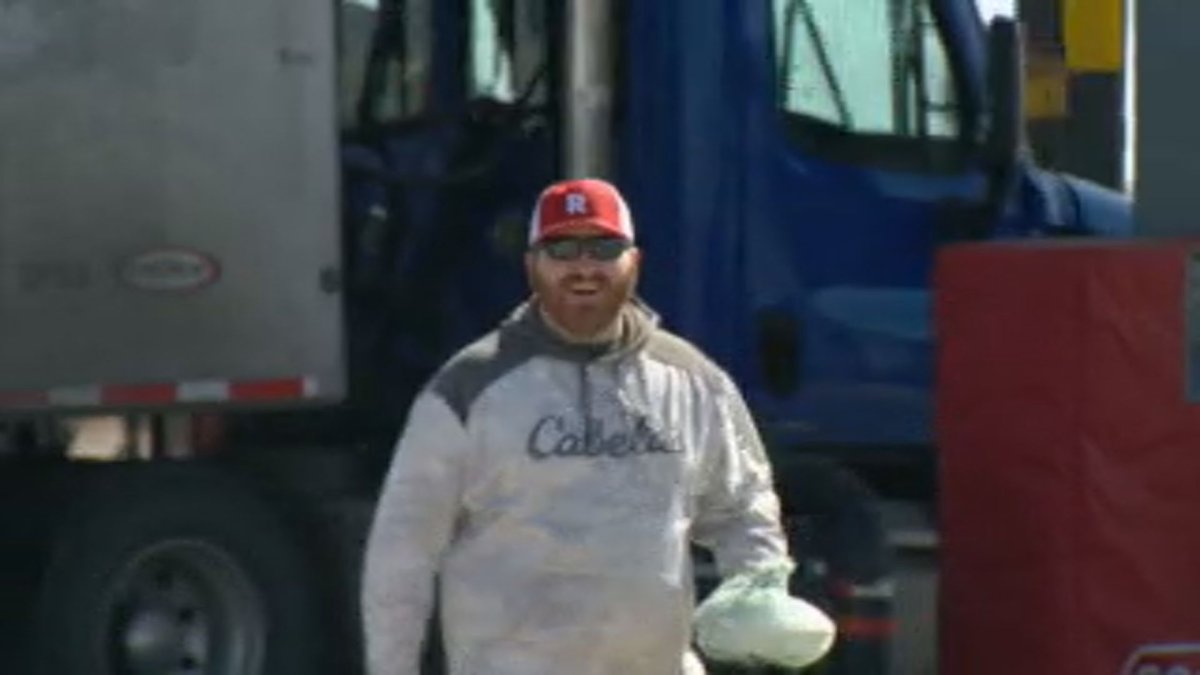Truck drivers passing through a Regina gas station were able to fuel up their vehicles — and themselves — heading into the Easter long weekend.

Kale Nash and his family prepared 150 warm meals and spent Thursday handing them out at the Co-op Cardlock on Fleet Street.
Under the provincial state of emergency amid the COVID-19 pandemic, restaurants across Saskatchewan, like many businesses deemed non-essential, have been shut down.
“When I heard that restaurants were going to be closing down, already, I knew that truck stop restaurants were going to be closing down,” Nash said.
But truckers transporting essential goods, from medical supplies to groceries, are still working.
“Without them, they won’t have the respirators. They won’t have the hand sanitizer. Or food,” said Nash, taking a break from distributing the Styrofoam containers filled with meat and potatoes with gravy and a side of vegetables.

Get daily National news
Nash and his family began their effort at 11 a.m. Within the first hour or so, they handed out 25 to 30 of their packets.
The truck drivers were grateful, Nash said.
“A lot of them that we had so far this morning are either coming into Regina after their downtime or they’re just taking off,” he said.
“They’re doing something nice for us. Why can’t we do something nice for them?”

Questions about COVID-19? Here are some things you need to know:
Health officials caution against all international travel. Returning travellers are legally obligated to self-isolate for 14 days, beginning March 26, in case they develop symptoms and to prevent spreading the virus to others. Some provinces and territories have also implemented additional recommendations or enforcement measures to ensure those returning to the area self-isolate.
Symptoms can include fever, cough and difficulty breathing — very similar to a cold or flu. Some people can develop a more severe illness. People most at risk of this include older adults and people with severe chronic medical conditions like heart, lung or kidney disease. If you develop symptoms, contact public health authorities.
To prevent the virus from spreading, experts recommend frequent handwashing and coughing into your sleeve. They also recommend minimizing contact with others staying home as much as possible and maintaining a distance of two metres from other people if you go out.
For full COVID-19 coverage from Global News, click here.










Comments